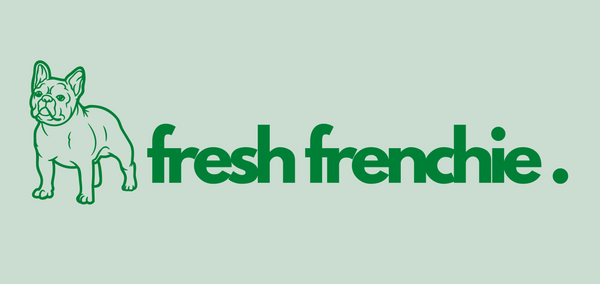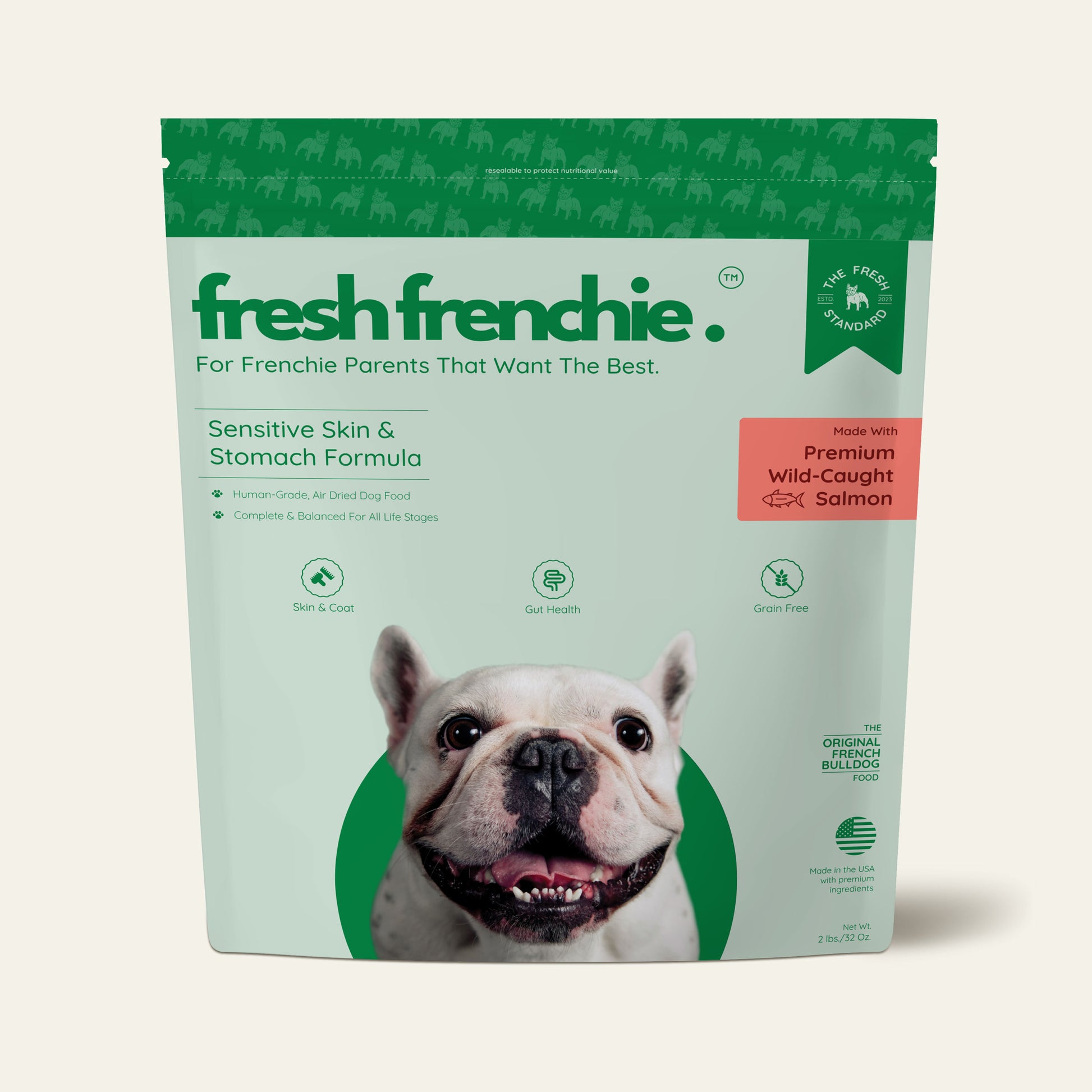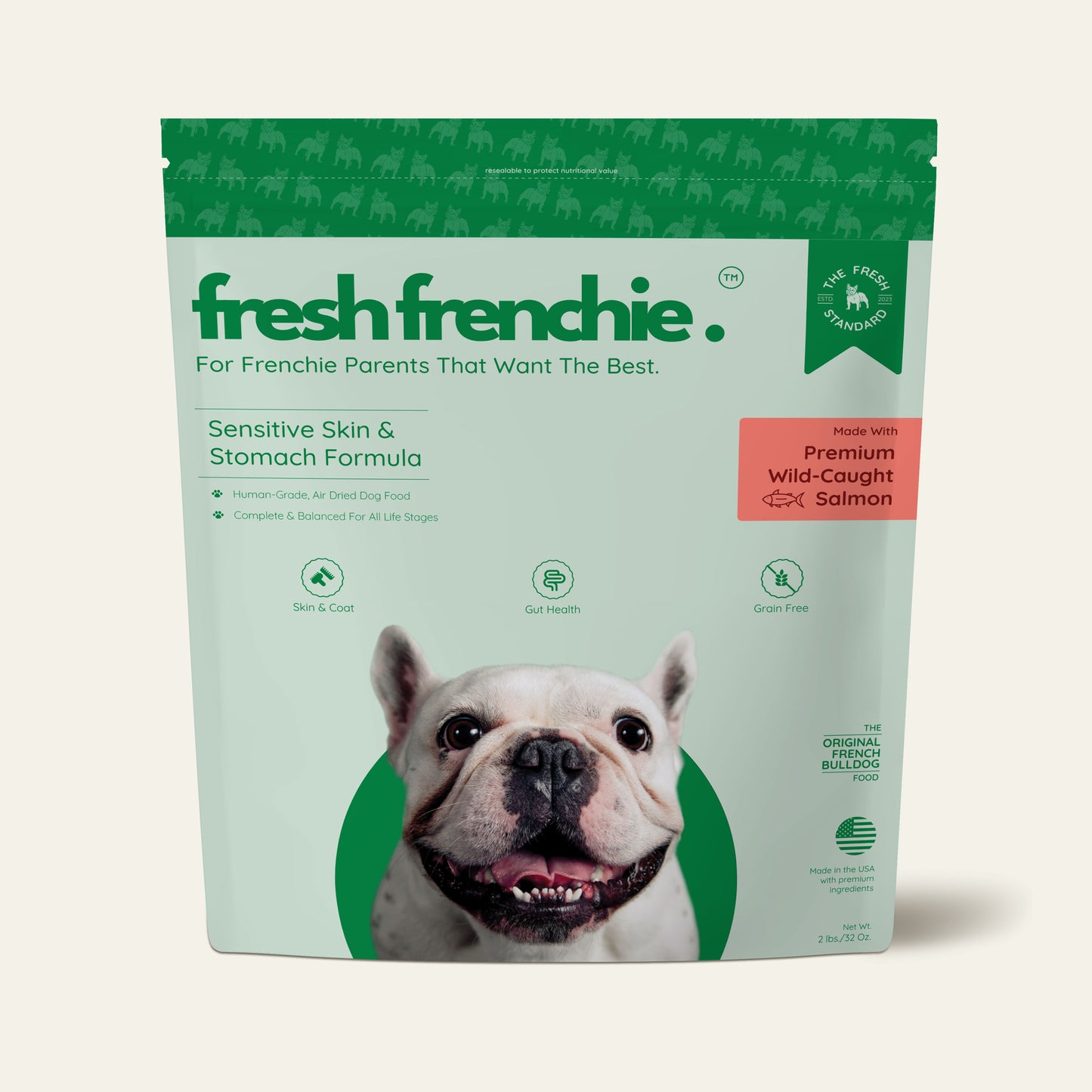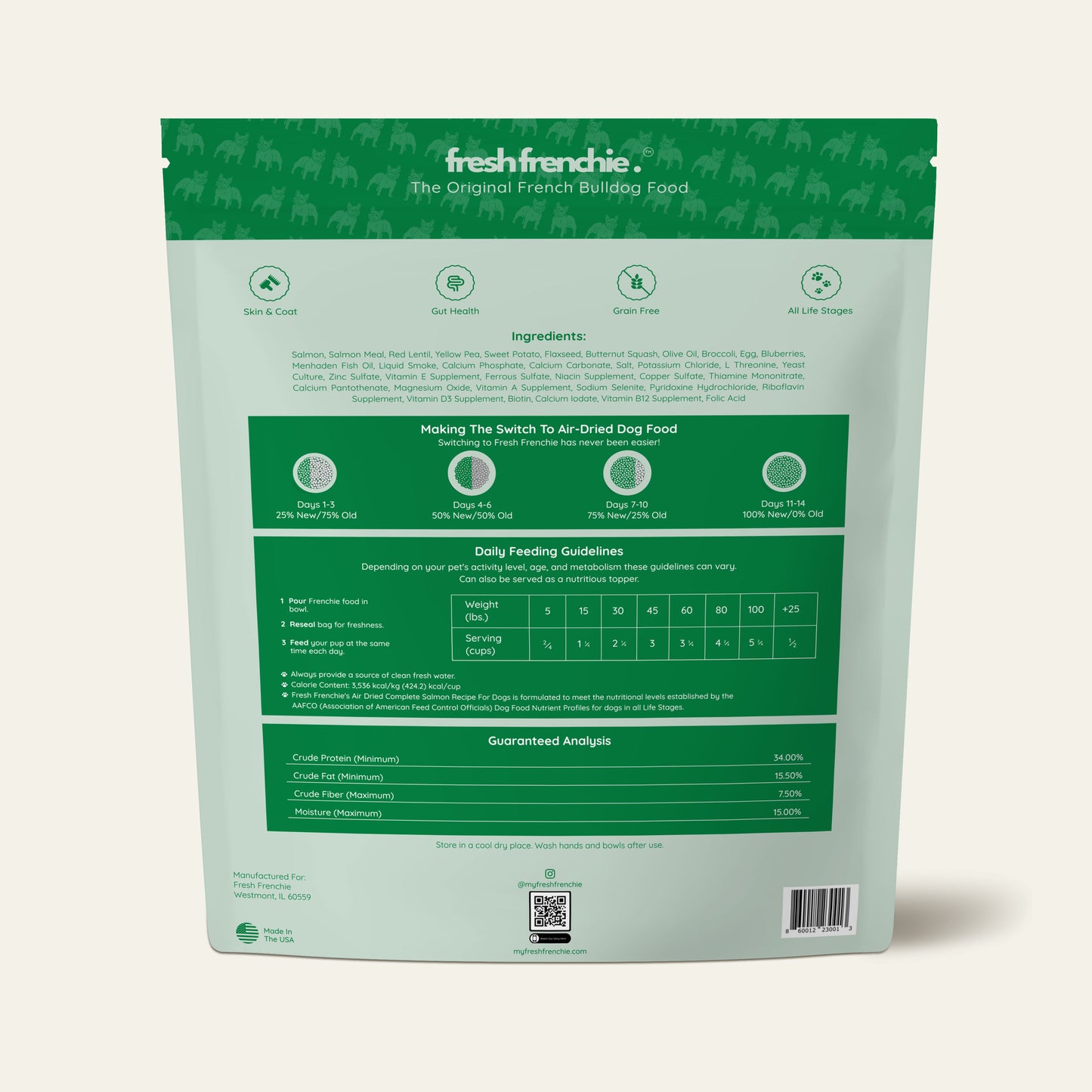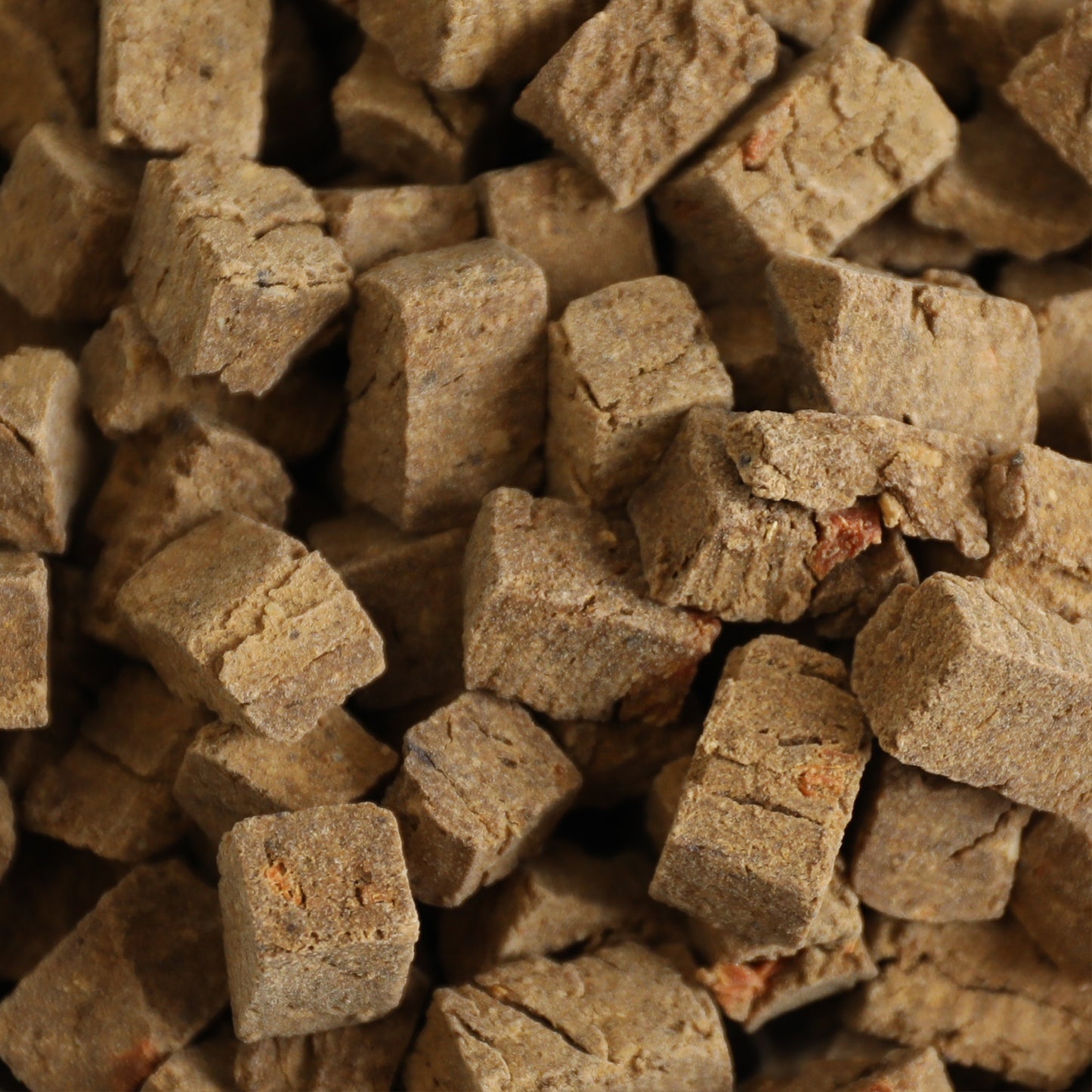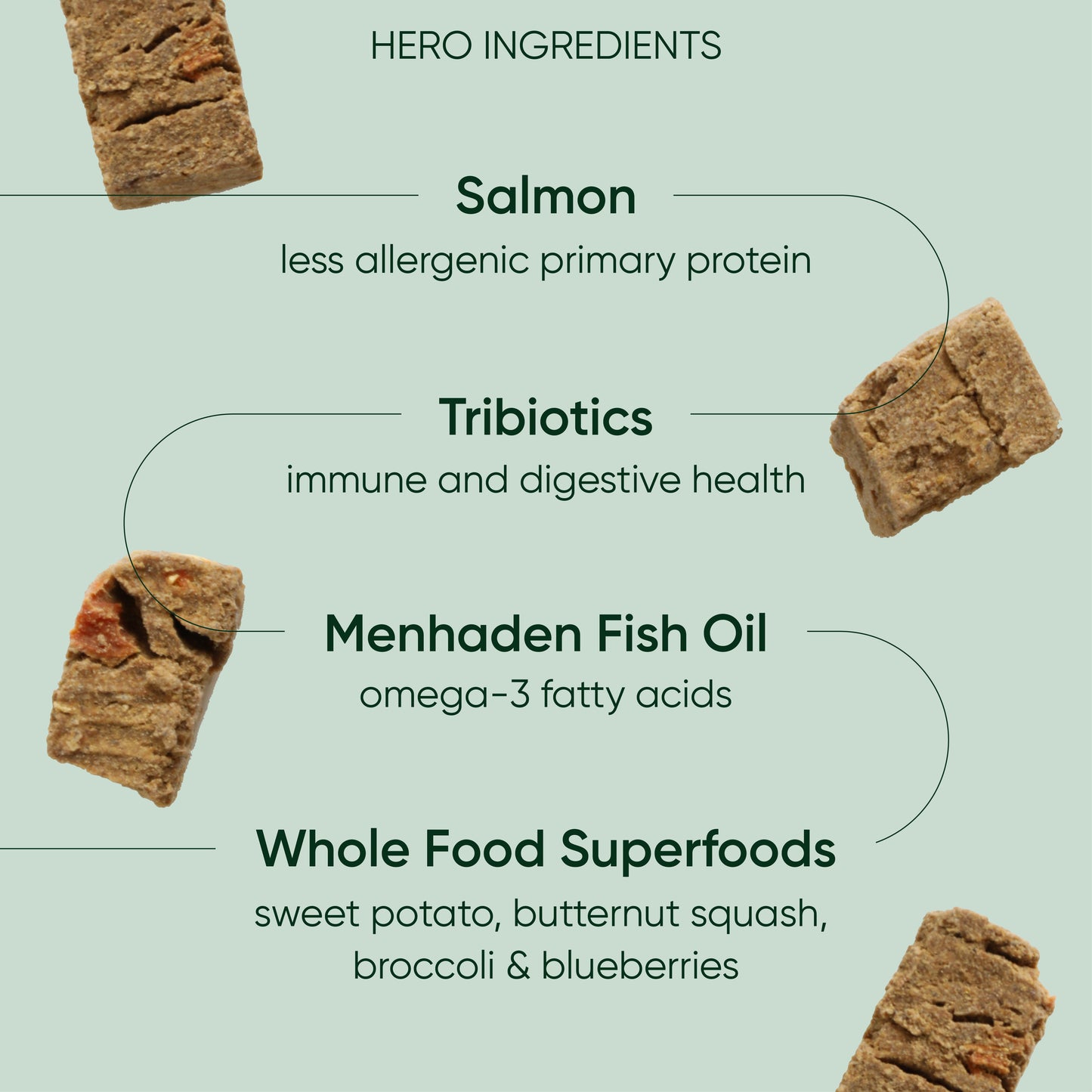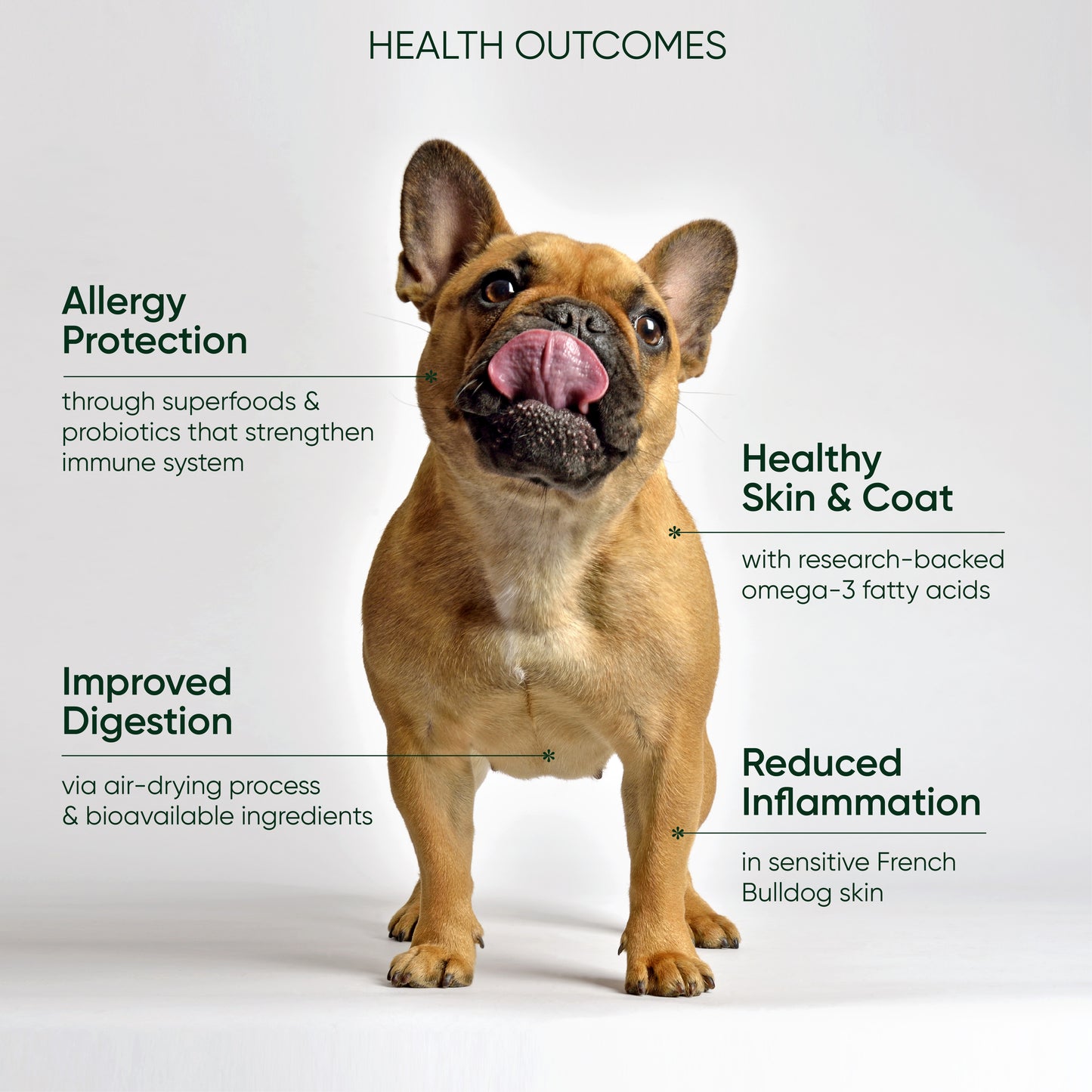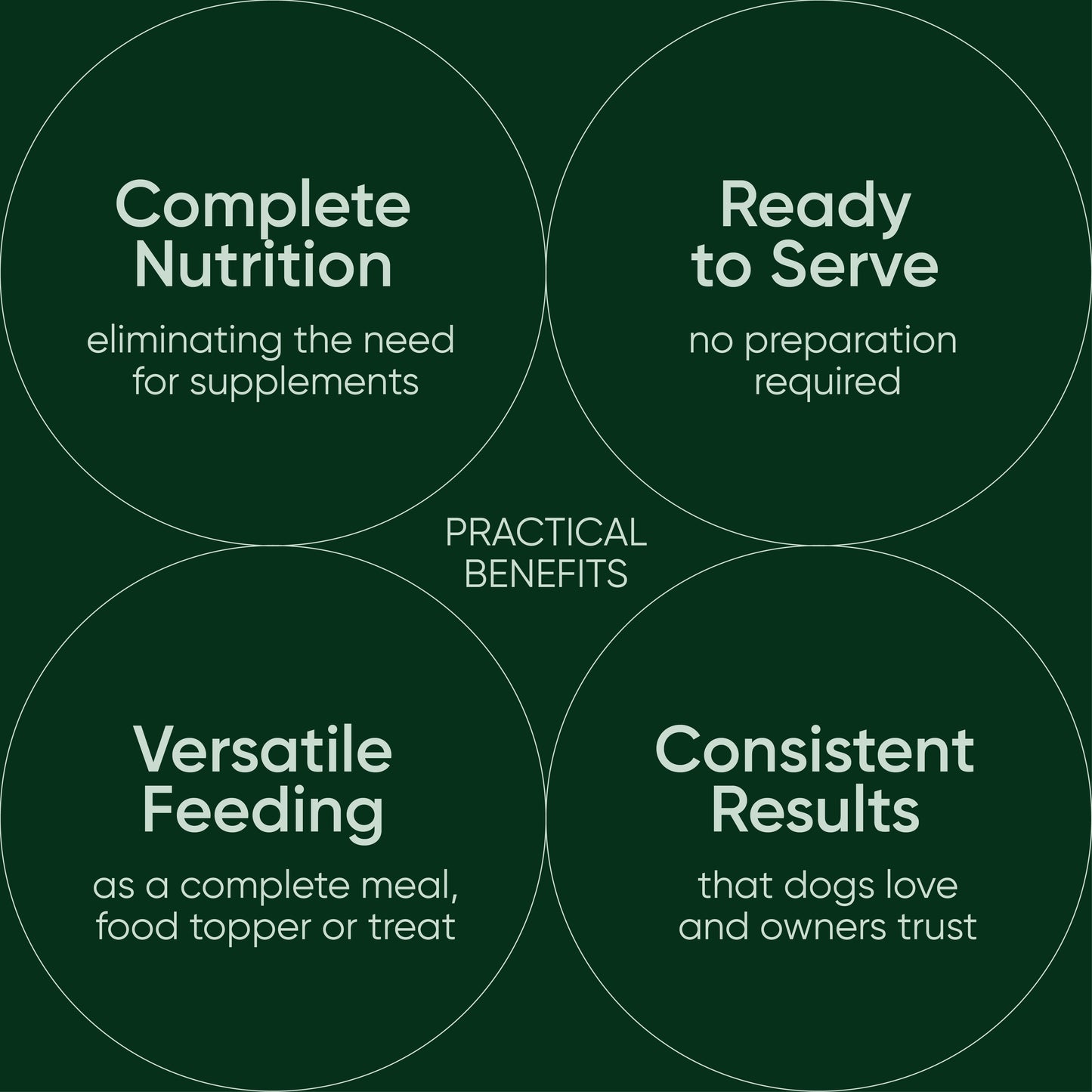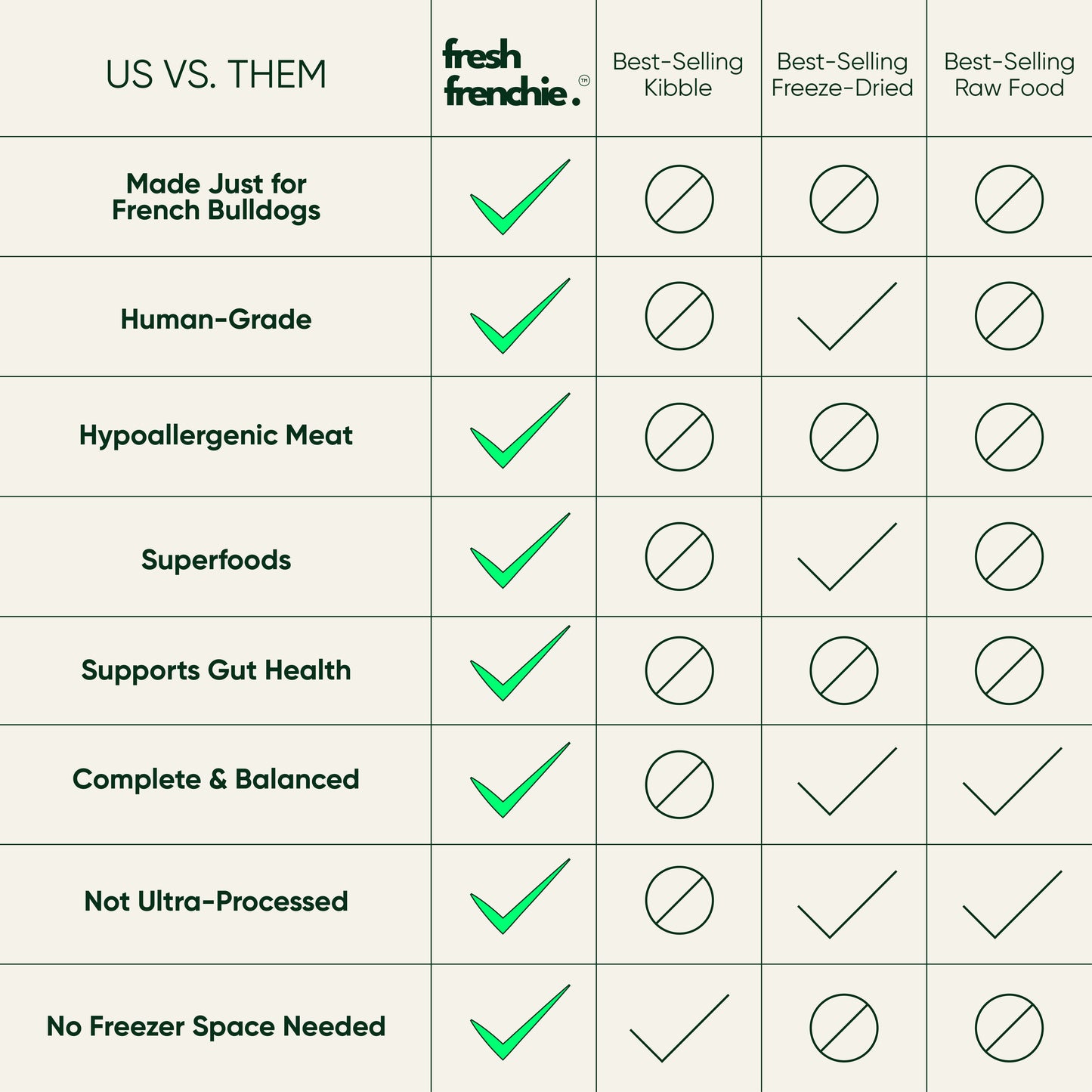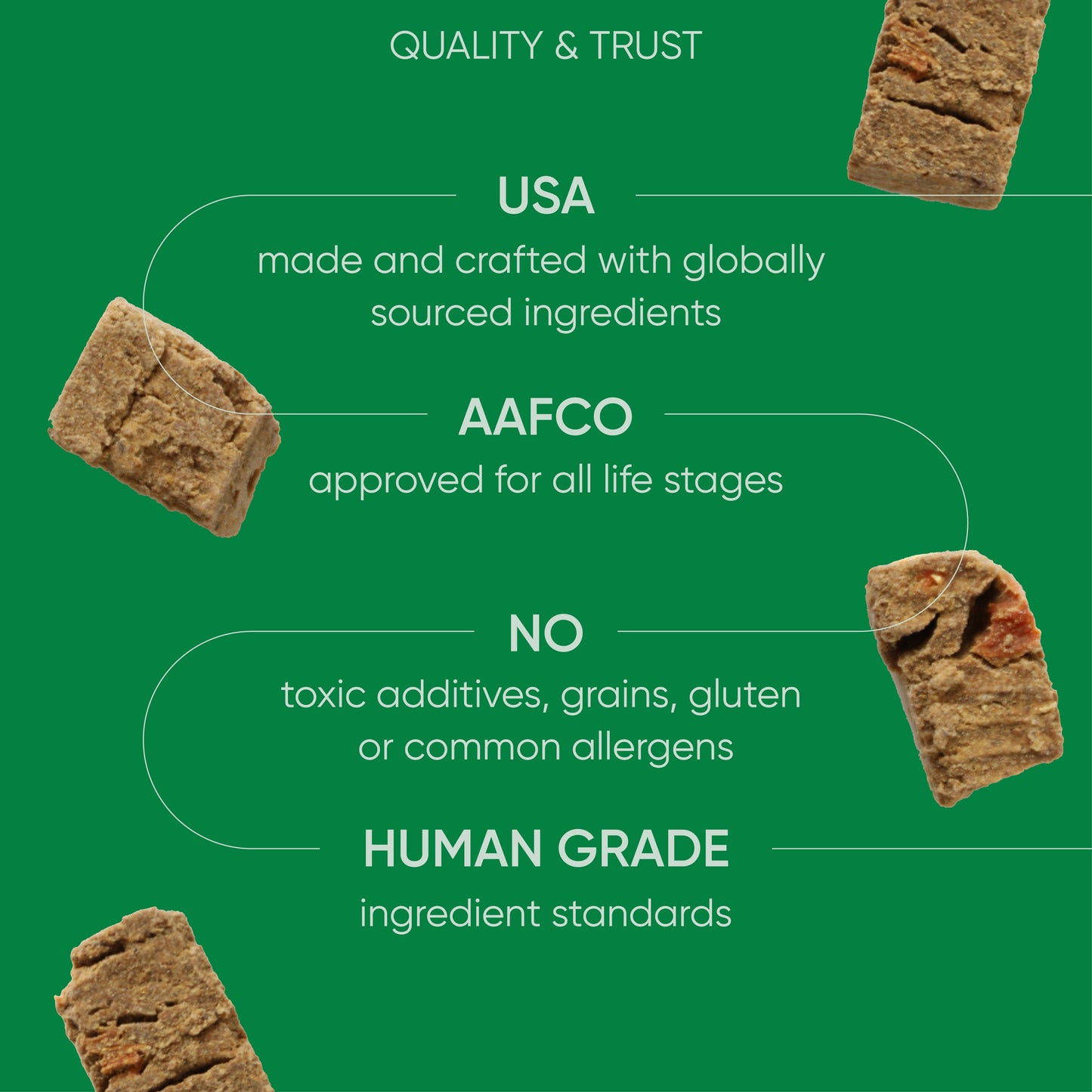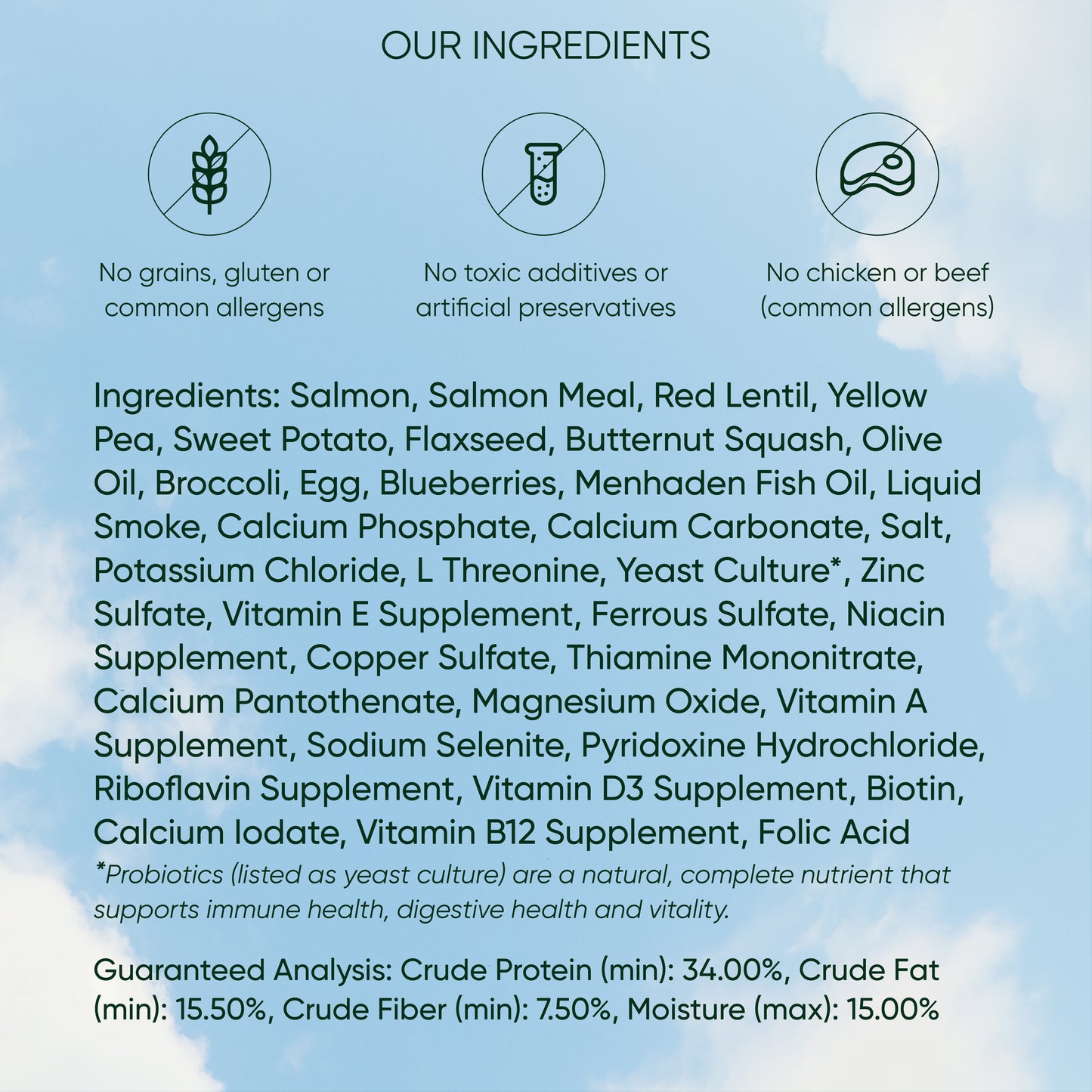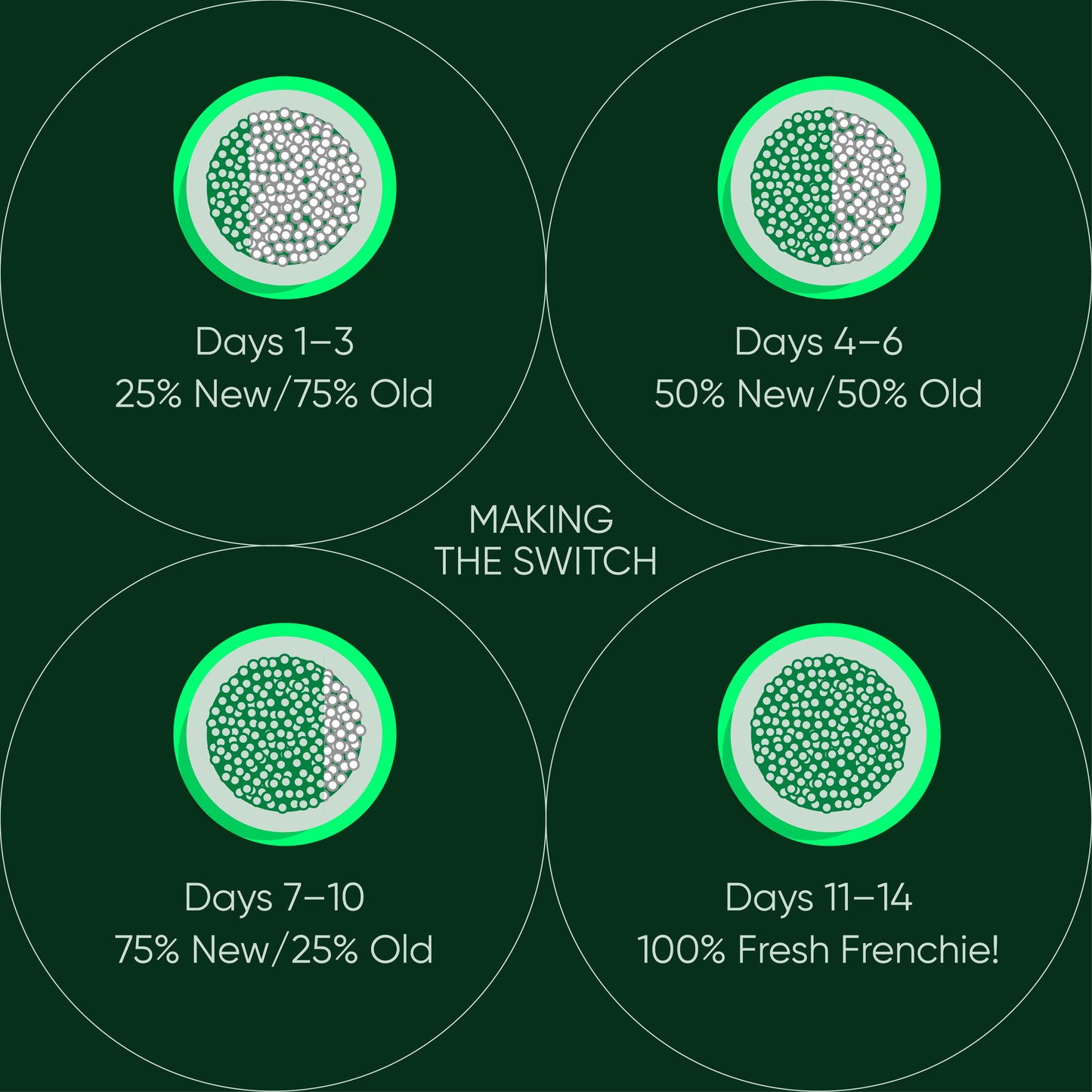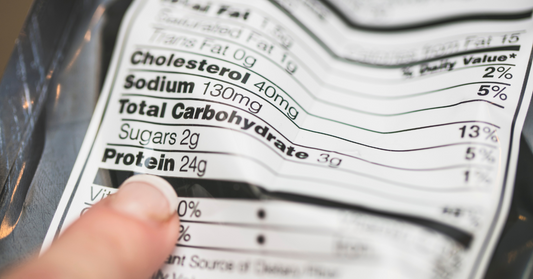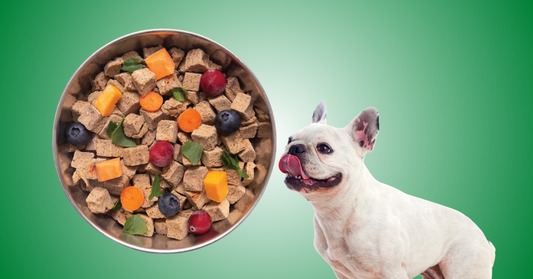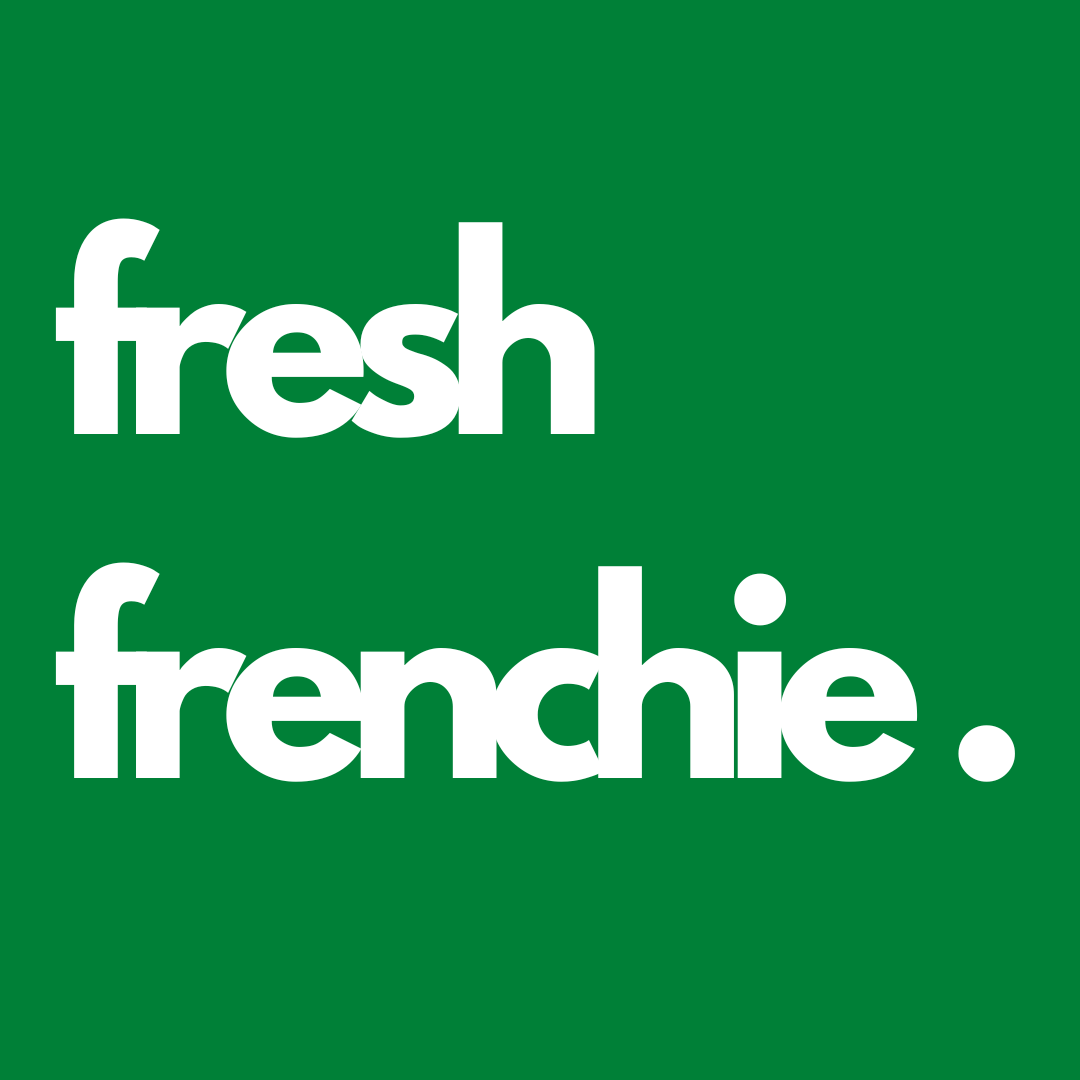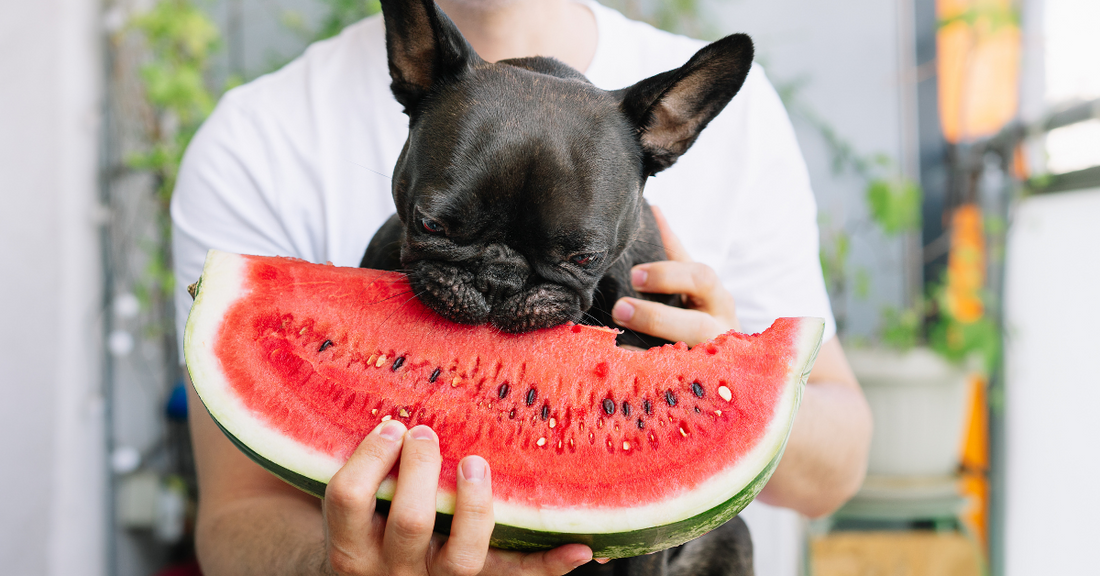
French Bulldog Diet: Fueling Your Frenchie For A Healthy Life
Share
Worried about choosing the right food for your French Bulldog? A good French Bulldog diet is crucial for their overall health and happiness.
With the overwhelming number of options available, finding the best diet can feel like a daunting task. Some food is good for them while other foods French Bulldogs are not allowed to eat.
Our guide will empower you with the knowledge to select the ideal nutrition for your beloved companion, ensuring they thrive and live a long, happy life.

Understanding Your Frenchie’s Unique Diet Needs
As Frenchie Parents, we know that French Bulldogs are a special breed of dog. Their short snouts and small size mean they require a special diet.
- Brachycephalic Challenges: Their flat faces can make breathing and digestion harder.
- Digestive Sensitivities: They're prone to upset tummies and food allergies.
A balanced diet with high-quality protein and healthy fats without fillers is crucial. This helps them maintain a healthy weight, supports their immune system, and improves their skin and coat. Look for foods with real meat as the main ingredient and avoid excessive fillers like corn or wheat.
But, every Frenchie is different. Observe their energy levels, stool quality, and overall health to ensure their diet is meeting their individual needs.
Why Is Diet Important For French Bulldogs?
When it comes to feeding your French Bulldog, quality trumps quantity every time. Instead of focusing on the cheapest option, prioritize premium brands that use real, wholesome ingredients.
Look for foods with a high meat content and minimal to zero grains. Avoid artificial additives, by-products, and fillers.
Choosing a high-quality diet provides your Frenchie with the essential nutrients they need for optimal health. This includes high-quality protein for muscle development, healthy fats for energy and brain function, and vitamins and minerals for overall well-being.
By investing in a quality diet, you're not just feeding your Frenchie, you're investing in their long-term health and happiness.
Your Frenchie’s Essential Nutritional Needs

Educational Sources For French Bulldog Nutrition
What Veterinarians Recommend For Brachycephalic Breeds
Consulting your veterinarian is crucial when determining the right diet for your French Bulldog.
French Bulldogs, with their unique brachycephalic features, have specific dietary needs.
- Respiratory Considerations: Their short muzzles can make breathing and digestion more challenging.
- Weight Management: Maintaining a healthy weight is crucial for their respiratory health and overall well-being.
- Joint Health: Brachycephalic breeds are prone to joint issues, and the right diet can help support healthy joints.
Your veterinarian can assess your Frenchie's individual needs, considering their age, weight, activity level, and any existing health concerns. They can recommend:
- Diets specifically formulated for brachycephalic breeds: These diets often contain smaller kibble sizes to help prevent choking and may have adjusted calorie levels to help maintain a healthy weight.
- Weight management plans: If your Frenchie is overweight, your vet can recommend a diet and exercise plan to help them achieve a healthy weight.
- Dietary supplements: In some cases, your vet may recommend supplements to support joint health, skin health, or other specific needs.
French Bulldog Diet Based On French Bulldog Breeders
French Bulldog breeders often recommend focusing on high-quality, species-appropriate ingredients in their diets.
- Limited Ingredient Diets: These diets contain a fewer number of protein and carbohydrate sources, reducing the risk of food allergies and sensitivities common in Frenchies.
- High-Quality Protein Sources: Prioritize animal protein sources like fish, lamb, or beef, and avoid "by-products" or "meat meal."
- Fresh Foods: Incorporate fresh fruits and vegetables into their diet as healthy treats or additions to their meals.
- Avoiding Fillers: Minimize or avoid grains like corn, wheat, and soy, which can be difficult for some Frenchies to digest.
Referencing Peer-Reviewed Studies On French Bulldog Nutrition
Peer-reviewed studies offer valuable insights into the dietary needs of brachycephalic breeds like French Bulldogs.
Research suggests that limited ingredient diets may help minimize the risk of food allergies and sensitivities, which are common in French Bulldogs.
For example, a study published in the Journal of Veterinary Internal Medicine found that a significant percentage of French Bulldogs with skin issues experienced improved symptoms when transitioned to a limited ingredient diet.
Studies have also shown that diets rich in high-quality animal protein sources are crucial for optimal growth and development in brachycephalic breeds. For instance, a study in the Journal of Animal Science found that diets with higher levels of animal protein supported lean muscle mass and overall health in French Bulldogs.
While further research is needed, some studies have explored the potential impact of diet on respiratory function in brachycephalic dogs. For example, a study published in the Veterinary Journal investigated the potential link between dietary fat content and respiratory function in brachycephalic breeds, suggesting a potential area for further investigation.
These findings emphasize the importance of choosing a diet that prioritizes high-quality ingredients and minimizes potential allergens.
Macronutrients For Optimal Frenchie Health
Importance Of High-Quality Protein In A Frenchie's Diet
French Bulldogs thrive on a protein-rich diet. Protein is essential for building and maintaining muscles, providing energy, supporting the immune system, and promoting healthy skin and coat.
Prioritize dog foods with high-quality animal protein sources like fish, lamb or beef listed as the primary ingredients. Avoid foods that rely heavily on plant-based proteins, as they may not provide the same nutritional benefits as animal protein.
Balancing Fats And Carbs
Balancing fats and carbohydrates in your French Bulldog's diet is crucial for their overall health and well-being.
Fats play a vital role in providing energy, supporting brain function, and maintaining a healthy skin and coat. Essential fatty acids, like those found in fish oil or flaxseed oil, are particularly important. These healthy fats promote a shiny coat, healthy skin, and a strong immune system.
While carbohydrates can provide a source of energy, they are not essential to a dog's diet. In fact, many experts believe that a high-carbohydrate diet can be detrimental to some dogs, potentially leading to weight gain and digestive issues.
It is generally recommended to limit carbohydrates in a French Bulldog's diet and focus on a diet that is primarily protein-based with healthy fats.
How To Choose The Best Food For Your Frenchie
Understanding Dog Food Labels And Key Ingredients For French Bulldogs
What High Quality Protein Sources To Look For
When selecting a high-quality protein source for your French Bulldog, prioritize options known for their digestibility and low allergenicity.
- Novel Proteins: Consider incorporating novel proteins like salmon, lamb, kangaroo, or rabbit into your Frenchie's diet. These proteins are less likely to trigger food allergies compared to more common proteins such as beef or chicken, which many dogs have already been exposed to.
- Hydrolyzed Proteins: Hydrolyzed proteins are proteins that have been broken down into smaller fragments. This process can make them less likely to trigger an allergic reaction.
Remember to choose dog foods that list a specific animal protein source as the first ingredient, indicating that it is the primary source of protein in the formula.
How To Prioritize Nutrient-Rich Ingredients
Beyond protein and healthy fats, incorporating nutrient-rich ingredients into your French Bulldog's diet can offer significant health benefits.
Superfoods like blueberries, known for their antioxidant properties, can support brain function and immune health. Broccoli, packed with vitamins and minerals, can boost the immune system and promote digestive health. Butternut squash, a good source of fiber and vitamins, can aid in digestion and provide essential nutrients.
These superfoods can provide a valuable supplement to your Frenchie's regular diet, offering a boost of vitamins, minerals, and antioxidants.
How To Choose The Best Feeding Option For Your Frenchie

Complete & Balanced Air Dried Dog Food
Complete & Balanced Air Dried Dog Food can be a particularly good option for French Bulldogs.
French Bulldogs, with their sensitive stomachs, may benefit from the gentle processing of air-dried foods. This method retains more of the natural nutrients, flavors, and aromas than traditional kibble, which can be beneficial for dogs with sensitive digestive systems.
Furthermore, air-dried foods are designed to be nutritionally complete and balanced, providing your Frenchie with all the essential nutrients they need for optimal health. This is crucial for French Bulldogs, who have specific dietary needs due to their brachycephalic features.
Convenient Kibble
Kibble, while convenient due to its long shelf life and ease of storage, may not be the ideal choice for all French Bulldogs.
The extensive processing involved in kibble production can significantly reduce the nutritional value of the ingredients. High temperatures and prolonged cooking times can degrade vitamins, minerals, and enzymes.
Furthermore, many kibble brands contain artificial colors, flavors, and preservatives, which can be harmful to your Frenchie's health. Additionally, many kibbles rely heavily on grains and fillers, which can be difficult for some French Bulldogs to digest and may not provide the optimal nutritional balance.
Wet Dog Food For Hydration
While wet dog food offers a higher moisture content, which can be beneficial for hydration, it also presents certain drawbacks, particularly for French Bulldogs.
Wet food typically has a shorter shelf life compared to kibble and requires refrigeration after opening, making it less convenient for storage and meal preparation.
Furthermore, many wet food options contain high levels of sodium, which can be detrimental to the health of French Bulldogs, particularly those with heart or kidney issues. Additionally, some wet foods may contain artificial colors, flavors, and preservatives, which can be harmful to your Frenchie's health.
Raw Food Diets For French Bulldogs
Raw diets, while offering a nutritionally dense option for dogs, present several considerations for French Bulldog owners.
Raw diets, consisting of uncooked meats, bones, and organs, are considered by some to be the most nutritionally complete for dogs, closely mirroring their ancestral diets. They are rich in enzymes, vitamins, and minerals that may be lost during the processing of other commercial diets.
However, raw diets also carry significant risks. They can harbor harmful bacteria such as Salmonella and E. coli, posing a risk of food borne illness to both the dog and their human family.
Furthermore, preparing and handling raw food requires meticulous attention to hygiene and safety protocols to minimize the risk of contamination. This can be time-consuming and may not be practical for all pet owners.
